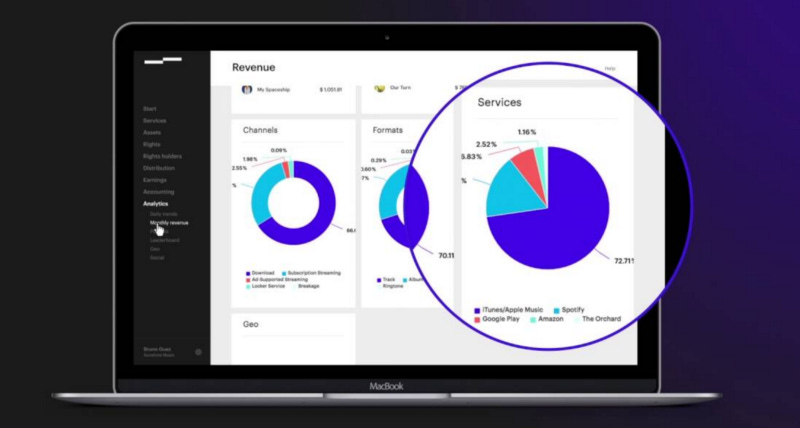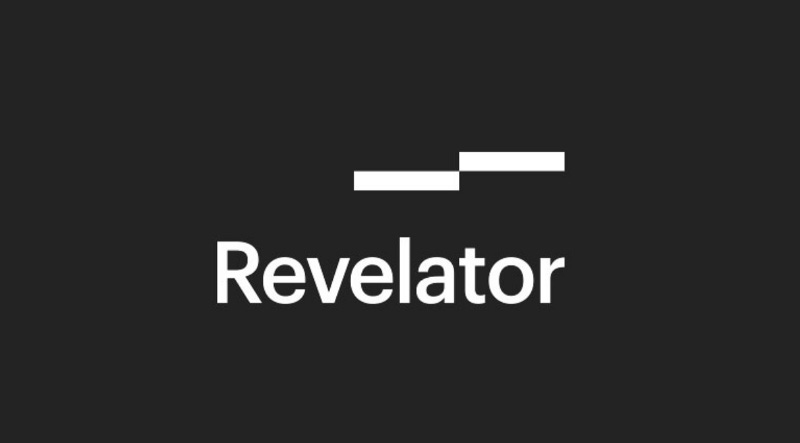Revelator’s Decentralized Vision for Managing Creative IP
Revelator sprang from the assumption that music business systems could be dramatically improved and that decentralized approaches would…
Revelator sprang from the assumption that music business systems could be dramatically improved and that decentralized approaches would yield the greatest impact. With a comprehensive view of how transactions work in music, Revelator distills nearly everything artists do and need into one simple set of interlocking, truly global tools.
These tools upend industry norms. Thanks to its already successful Original Works platform, Revelator has put blockchain to work for artists, labels, publishers, and CMOs. Payments can happen today, not next quarter. Based on a digital wallet of assets and funds, IP assets can be shared or reassigned clearly and permanently via smart contracts, using an interface anyone can understand. Claims or microloans can happen right there on the platform.
Founded by a life-long producer, music scholar, label head, and artist advocate, Bruno Guez, Revelator has started to prove what blockchain can do for music. Revelator has worked closely with leading rights organizations (Teosto), major music distributors (CD Baby/Soundrop), and platforms (Wix Music). The ultimate goal is simple: to change the business for the better by empowering creative professionals through creative IP management and peer-to-peer finance.
Revelator is the logical extension of how the internet globalized the music industry. “Artists and fans have been connecting directly for decades, and artists have been collaborating remotely together for years,” says Guez. “The peer-to-peer approach is just starting to transform royalties and creative IP. We’re at the start of a transactional economy that promises to change the way we create, listen to, and pay for music.”
For those dedicated to music practice and business, Revelator’s approach to blockchain feels refreshing. It’s less about asking what music can do with blockchain, but grasping what blockchain can do for music. The music comes first; the technology merely enables the process.
Guez saw keenly how desperately things needed to change as he attempted to manage his own musical catalog during a period of intense change. Guez studied Ethnomusicology at UCLA, and made a name for himself as a global music instigator, djing in LA clubs, founding Quango Music Group (Tricky, Kruder & Dorfmeister, Sneaker Pimps, Talvin Singh), and working as music director for Cirque du Soleil. He cut a deal with Palm Pictures and Island Records. Guez became a sync and licensing whiz, working with major TV, films, and brand partners. At the label’s peak during the iTunes era, Guez employed seven people to help run the business.
It was a business undergoing extreme transition. Guez knew he was in for a wild ride when a friend from London showed him this cool new app called Spotify. “I remember thinking, ‘Oh shit we’re in trouble’,” Guez recalls. “I knew we were going to lose money again as an industry. Then 99 cents per download became a fraction of a penny per stream.”
As he watched the recorded music business struggle, he pushed to maximize the impact of the artists and tracks he worked with. He downsized, moved from LA to Israel, and created systems to streamline rights management, customizing Salesforce to handle the workflow.
Salesforce’s cloud capabilities suggested new possibilities, and Guez decided to make a commercial, cloud-based product out of his custom system. Revelator was born, eventually powering distribution and royalty accounting solutions for large independent distributors like Soundrop, a division of CD Baby/Downtown. Revelator’s professional platform is the first fully globalized IP management system, currently supporting 45 languages and variations in contracts and rights.
As Revelator evolved, Guez got intrigued by blockchain, in particular by the opportunities afforded by smart contracts. This was 2016, when the tech was still nascent and blocks only held 1 MB of data. There was one other, huge catch: The music business wasn’t built for this kind of peer-to-peer transaction and transparency. It couldn’t even come together to decide on a global rights database.
Guez and his team set to work building a new infrastructure for the music industry, from the ground up. Based on blockchain, Revelator’s Original Works lets rightsholders manage their IP as fluidly as they might manage a social media account, using a digital wallet to collect royalties, assign ownership, and gain access to microfinance based on their existing revenue streams. Guez considered the problem from the rightsholder’s perspective, one he knew intimately: “Digital wallets and smart contracts are the way to use this tech in the music industry. You can store all your copyright metadata, rights, and digital transactions in an app and access it via any device. The digital wallet is your control center. You can get push notifications letting you know you got paid and get advances based on your daily earnings. Smart contracts let us connect wallets and manage splits, pro rata shares, everything.”
Revelator’s innovative foundation and features proceed from Guez’s deep experience with music and its movement around the globe. It’s beyond blockchain for its own sake. It is about creating a new world, where artists can make the most of their creative lives and their teams can support their ambitions and connections. And finally, Guez feels, the world is catching up to Revelator’s vision: “We got into blockchain very early, almost too early,” he says with a chuckle. “It baffled many of the people we demoed for. Now, everyone is excited and ready to pursue a new digital asset strategy.”
The way forward won’t be easy, but Guez sees that music itself is changing rapidly, merging with the bigger sea of creative content and assets. The business will have to embrace broader collaboration, faster licensing, bigger-picture thinking about music’s role in art and entertainment at large. “Music is a legacy industry,” Guez explains. “Blockchain’s finance disruption plus the digitalization of music is leading to an industry that’s real time, liquid, accessible and programmable or composable. We’ll need a new way of thinking of art and new ways to monetize IP. That’s the imminent revolution in music, reshaping of the marketplace and creative expression and the way that flows between participants who aren’t music insiders or specialists. Anyone can participate.”
==================================
🎵 Subscribe today for your daily rundown of the most important & interesting music streaming news
✉️ Send story ideas & feedback to: jeff@platformandstream.com
⭐️ Support Platform & Stream by sponsoring an issue sent to our 2200+ subscribers every weekday.
☕️ Or you can support us with a coffee





